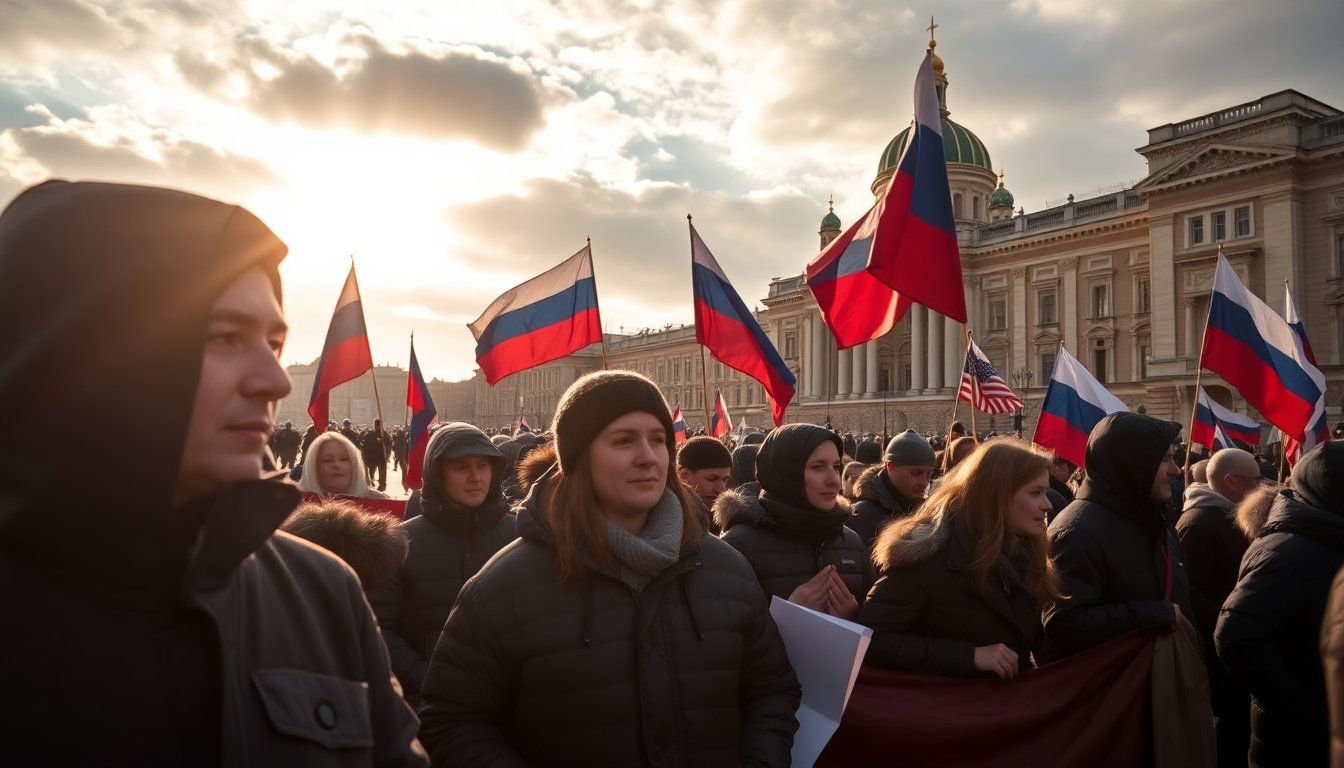Table of Contents
In recent months, Russia’s political climate has undergone significant changes, particularly regarding the treatment of dissent and international relations. The government’s increasing tendency to label opposition figures as terrorists poses serious implications for civil liberties and human rights within the nation. As tensions mount on various fronts, understanding these developments is crucial.
Escalation of terrorism charges against dissidents
On November 27, Russia’s Supreme Court will deliberate a lawsuit initiated by the Prosecutor General’s Office. This lawsuit seeks to classify the Anti-Corruption Foundation (ACF) as a terrorist organization. This classification specifically targets the foundation’s U.S. entity, established primarily for fundraising efforts. Leonid Volkov, a co-founder of the ACF alongside the late Alexey Navalny, expressed concerns that this designation could significantly hinder the organization’s ability to raise funds, travel abroad, and advocate for sanctions against the Putin administration.
Moreover, Volkov cautioned that designating the ACF as a terrorist organization might serve as a green light for Russian operatives to intensify their activities against exiled activists associated with the group. This alarming trend highlights the precarious nature of dissent in Russia, where mere suspicion can lead to dire consequences.
Broader implications of new legal frameworks
Since June, Russia has amended its criminal code to broaden the criteria for placing individuals on the government’s list of “terrorists and extremists.” This new legislation allows authorities to target anyone merely accused of discrediting the military or disseminating unapproved information regarding the war in Ukraine. Being included on this list effectively results in a form of civic death, stripping individuals of access to financial services, employment opportunities, and various other rights.
International tensions and military readiness
As the situation in Russia escalates, Europe is witnessing a series of military drills aimed at enhancing nuclear readiness. These exercises illustrate the heightened tensions stemming from ongoing geopolitical conflicts, particularly in light of Russia’s invasion of Ukraine. Amidst these developments, Ukraine is simultaneously negotiating for more flexible terms regarding a theoretical loan, hoping to strengthen its economic position.
In the background, former U.S. President Donald Trump has publicly refuted a report by the Wall Street Journal regarding U.S. support in long-range strikes against targets within Russia, labeling the claims as fake news. Trump’s comments highlight the complexities of international relations and the intricate web of alliances that define the current geopolitical landscape.
Energy concerns and sanctions
Despite President Putin’s executive order in August permitting Exxon Mobil to reclaim its shares in the Sakhalin-1 project, the company is reportedly still focused on exiting the Russian market. At the same time, Russia is set to deliver approximately 750,000 barrels of oil and gas to Syria, demonstrating its efforts to circumvent Western sanctions.
In a related move, the European Union is preparing a new sanctions package, which will include four companies involved in China’s oil sector, known for bypassing Western restrictions. Hungary, on the other hand, is initiating discussions to procure nuclear fuel from the United States while continuing to source supplies from Russia, highlighting the complex energy dynamics at play.
Women’s rights and cultural freedom
As political tensions rise, the implications for women’s rights and cultural expression in Russia are becoming increasingly concerning. Reports indicate that the atmosphere surrounding women’s rights has suffered setbacks, and freedom within the cultural sphere, particularly in music, is under threat. The climate of fear and repression stifles creativity and undermines the progress made in these areas.
Ukraine, while facing its own challenges, continues to advocate for assistance and support from international allies. As the situation evolves, the need for a united front against aggression becomes paramount. The ongoing war has not only reshaped the geopolitical landscape but has also impacted the lives of millions, forcing many to reevaluate their futures.
On November 27, Russia’s Supreme Court will deliberate a lawsuit initiated by the Prosecutor General’s Office. This lawsuit seeks to classify the Anti-Corruption Foundation (ACF) as a terrorist organization. This classification specifically targets the foundation’s U.S. entity, established primarily for fundraising efforts. Leonid Volkov, a co-founder of the ACF alongside the late Alexey Navalny, expressed concerns that this designation could significantly hinder the organization’s ability to raise funds, travel abroad, and advocate for sanctions against the Putin administration.0


